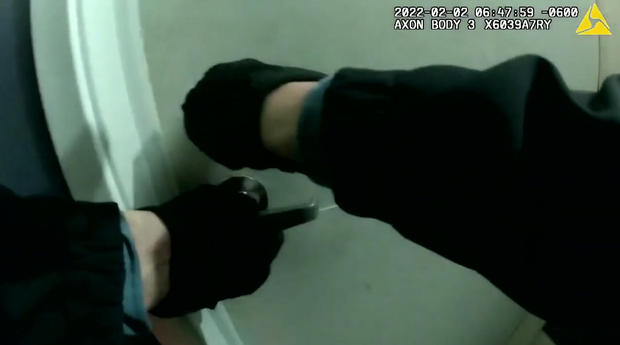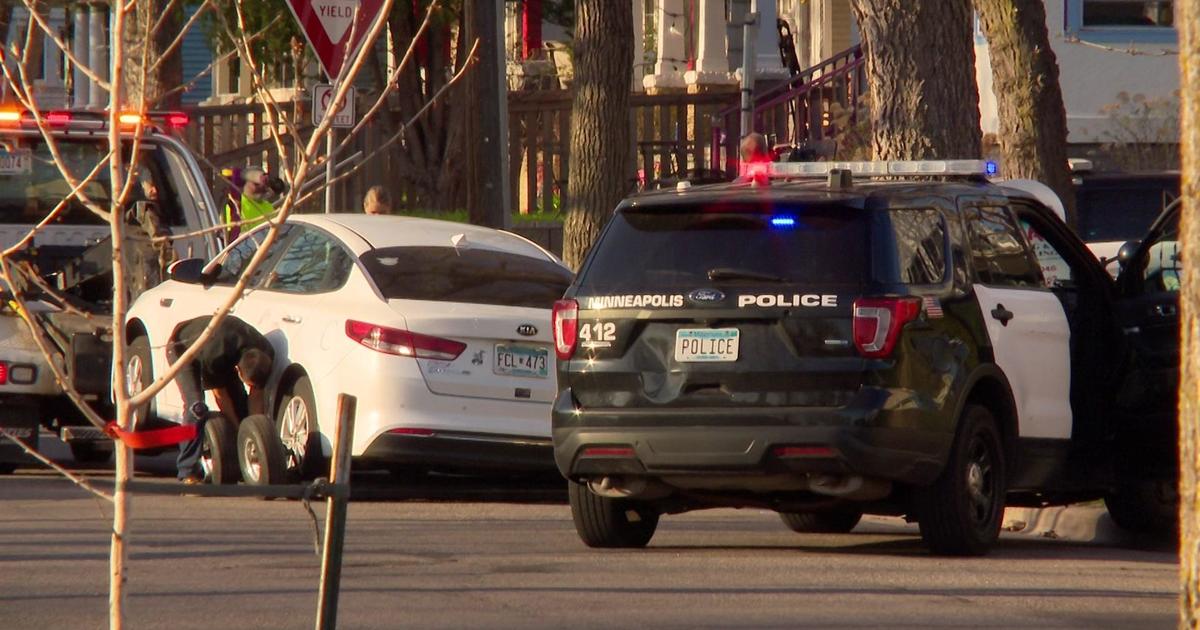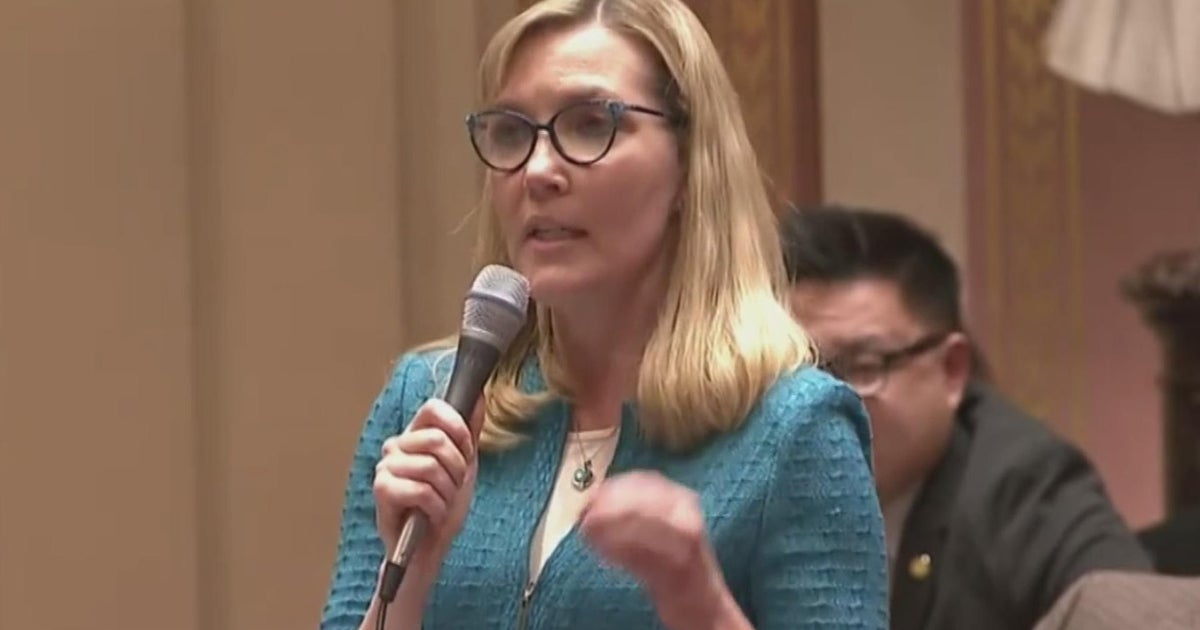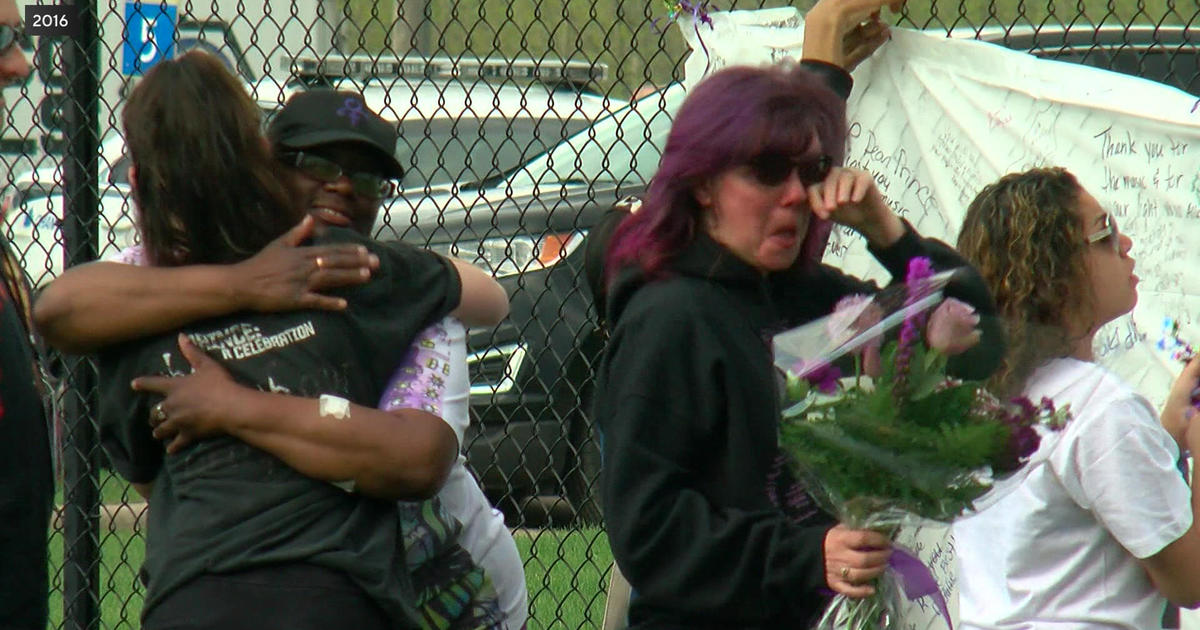No Charges Filed Against MPD Officer Who Shot, Killed Amir Locke During No-Knock Warrant
Originally published on April 6
MINNEAPOLIS (WCCO) -- A Minneapolis police officer will not face charges in the shooting death of Amir Locke, a 22-year-old Black man the officer shot and killed during a no-knock raid inside a downtown apartment earlier this year.
According to public records, Officer Mark Hanneman fired the shots that killed Locke. Body-worn camera footage will be posted online Wednesday, Hennepin County Attorney Mike Freeman said.
Following weeks of investigation, the Minnesota Bureau of Criminal Apprehension sent its final case report to the Hennepin County Attorney's Office to review for possible charges. The decision came down Wednesday morning, and was jointly announced by Freeman -- who said "to charge a case like this would simply be wrong" -- and Minnesota Attorney General Keith Ellison.
The two prosecutors say there was "insufficient admissible evidence" to file criminal charges, and said they are "not allowed to evaluate the case from the perspective of the victim."
WEB EXTRA: Read The Full Statement, Expert Review, & Case FAQs
"Specifically, the State would be unable to disprove beyond a reasonable doubt any of the elements of Minnesota's use-of-deadly-force statute that authorizes the use of force by Officer Hanneman. Nor would the State be able to prove beyond a reasonable doubt a criminal charge against any other officer involved in the decision-making that led to the death of Amir Locke," the joint statement said.
News Conference: Prosecutors Discuss Decision In Amir Locke Case
-------
Detailed in a 44-page joint report, prosecutors say an objectively reasonable officer in Hanneman's position would have perceived an "immediate threat of death or great bodily harm that was reasonably likely to occur, and an objectively reasonable officer would not delay in using deadly force."
A spokesperson with the Minneapolis Police Department says that Hanneman has been back on duty since Feb. 28.
"Officer Hanneman was assigned to a role that is the best fit for the needs of the department and his service to the City of Minneapolis. That assignment does not include SWAT," the spokesperson said.
The joint statement said it was not the role of both offices to evaluate whether a no-knock warrant was appropriate.
"[Locke] should be alive today, and his death is a tragedy. Amir Locke was not a suspect in the underlying St. Paul criminal investigation nor was he named in the search warrants. Amir Locke is a victim. This tragedy may not have occurred absent the no-knock warrant used in this case," the statement said.
"One thing Amir was not, Amir was not a suspect," Ellison said. "Our investigation found that he had no role in the homicide that brought the police to the apartment."
The decision was announced after Freeman and Ellison met with Locke's family Wednesday morning.
"They expressed frustration with no-knock warrants. They believe if a no-knock warrant wasn't used Amir Locke would be here today," Freeman said.
Ellison said this case highlights the need to put no-knock warrants under close scrutiny.
"The area of no-knock warrants needs reform. There is very broad discretionary latitude," Ellison said. "(They are) not particularly safe for officers, either. It's appropriate to investigate and come up with a policy that works."
The Police Officers Federation of Minneapolis released this statement late Wednesday afternoon about the decision:
The POFM is pleased with the Hennepin County Attorney's Office and Minnesota Attorney General's decision to not charge Officer Hanneman. After a thorough investigation by the BCA, the facts of the case and the applicable laws did not support charges. MPD SWAT was executing the warrant the evidence shows that Officer Hanneman was faced with a deadly threat and he had to make a split-decision to use deadly force to protect himself and others from death or great bodily harm. The use of deadly force by an officer is never taken lightly and weighs heavy on the officers involved. The incident was a tragedy for everyone involved and will have a lasting impact on many lives.
-------
On Feb. 2, SWAT team members executed the no-knock warrant on behalf of St. Paul police at an apartment inside Bolero Flats in downtown Minneapolios. The warrant was in connection with the fatal shooting of Otis Elder in January.
Body camera footage shows an officer use a key to unlock the front door of an apartment rented by the brother of murder suspect Mekhi Camden Speed, 17, who is Locke's cousin.
Officers began yelling "police" and "search warrant" as they passed through the door. Seconds later they encountered Locke, who had been sleeping under a blanket on a couch. Locke sat up and lifted a handgun before Hanneman shot him three times. About 10 seconds passed from the moment officers entered the apartment until Locke was shot. Locke died minutes later.
Minneapolis Interim Police Chief Amelia Huffman said Locke was not named in the original search warrant.
"We recognize the deep loss felt by Amir Locke's family and those who loved and knew him best, as well as the profound grief in our community," Huffman said on Wednesday. "Officers never want to face split-second decisions that will end in the loss of life."
Since his death, family and community members have denounced the use of no-knock warrants, calling his death an "execution." At Locke's funeral, his mother stood at the pulpit declaring that Minneapolis police "are going to pay."
"It took me 10 hours of labor to push him into this world. And on Feb. 2, 2022, those thugs that represent the MPD executed my baby boy, beautiful baby boy, in less than nine seconds," she said. "When you go to bed at night, I want you to see his face. When you wake up in the morning, I want you to see his face."
Minneapolis Mayor Jacob Frey was criticized in the aftermath of Locke's death over misleading claims he made during his re-election campaign months earlier that he banned no-knock warrants, because there was actually an exemption for warrant executions where there's an "imminent threat of harm."
"Language became more casual, including my own, which did not reflect the necessary precision or nuance. And I own that," Frey said.
The mayor announced in early March that he's proposing a policy to ban all no-knock and no-announcement warrants. It was implemented Tuesday evening. There are still exceptions in the policy.
Speed was charged in Elder's murder in mid-December.
After the charging decision in the Locke case was announced Wednesday, the Minnesota chapter of the American Civil Liberties Union was one of several groups calling for laws in Minnesota to change regarding use of force, even as they acknowledged the city's new policy on no-knock warrants.
"Today's decision not to charge MPD Officer Hanneman with killing Amir Locke on the basis that an 'objectively reasonable officer' could believe that such use of force was necessary is troubling and highlights the need to change a state law too often used to justify failures to charge or convict police who use violence," the group's statement said. "That the current law could be construed by some as justifying the killing of Locke is strong evidence that the time for change has come."
The ACLU of Minnesota reiterated it's call for Hanneman to be fired from the police force and for no-knock warrants to be banned at the state level.




